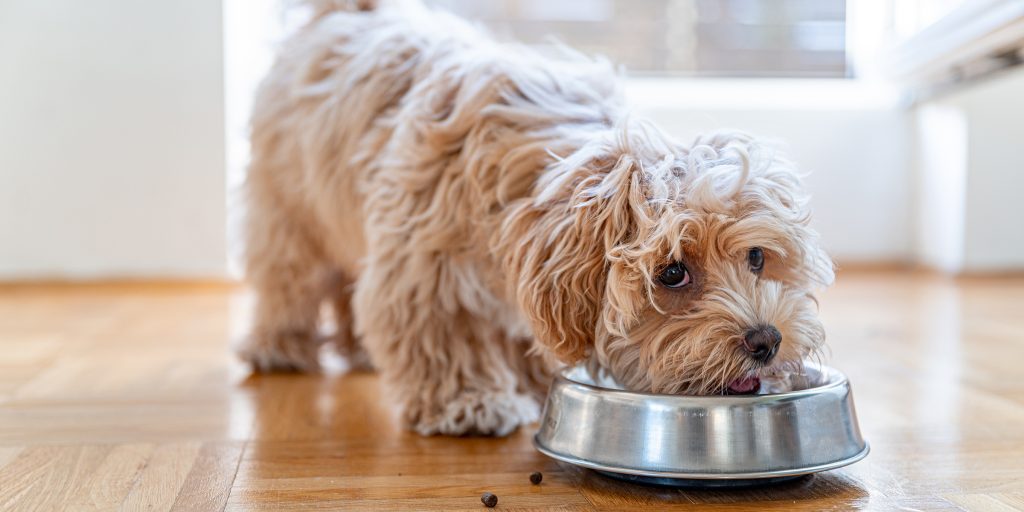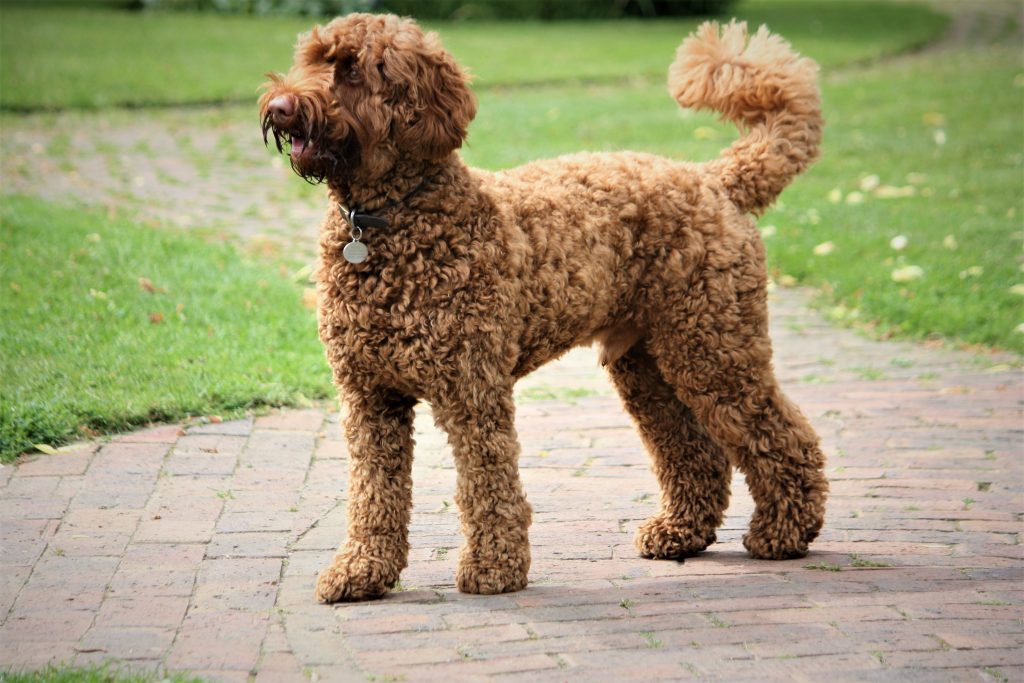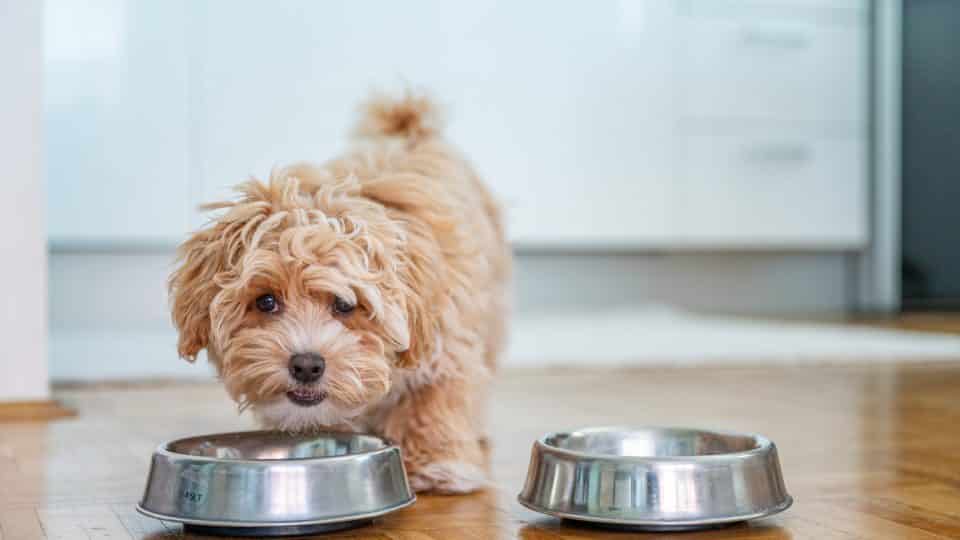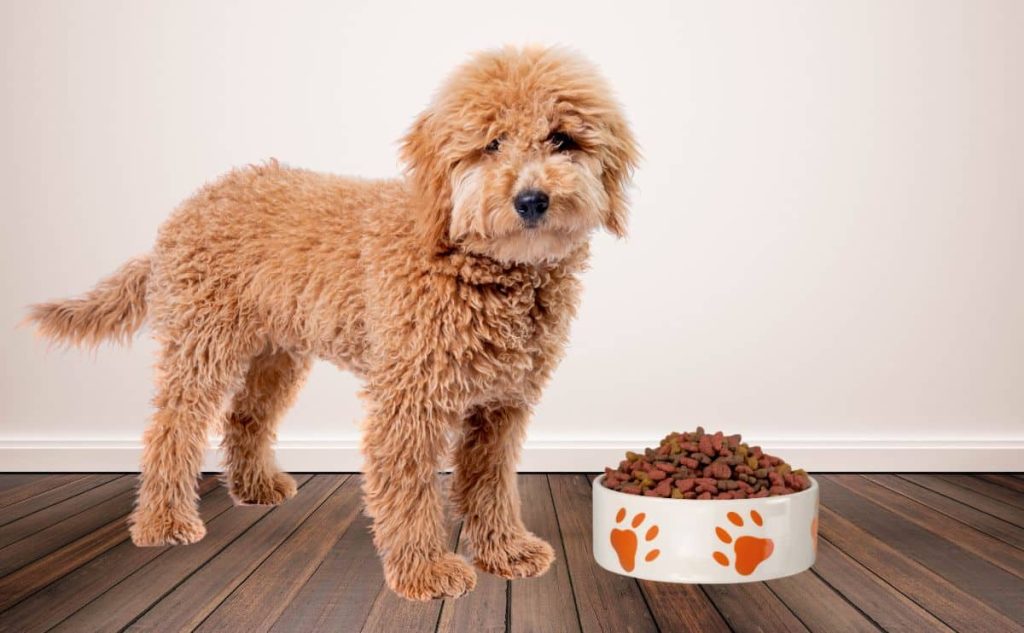Congratulations on your newest family member! While bringing home a poodle puppy is exciting, you also need to concentrate on the food for poodle puppies to get the best nutrition. After all, what we feed our pets affects their health and well-being.
There is a lot of contradictory information available regarding pup nutrition. That is why it pays to do your research and give your fur baby the best food for their needs. This article will discuss the benefits of feeding poodle puppies specially formulated puppy food and examine some of the best options available today. We will help ensure you select the perfect food for your pup so they can grow up happy and healthy!
Nutritional Needs for Poodle Puppies

The most popular dog breed seems to be the poodle. If you have recently brought a puppy poodle home, one of your top priorities should be selecting the best diet to meet their nutritional requirements. Understanding these requirements is crucial since feeding your puppy the proper diet is crucial for promoting their growth and maintaining their health.
When it comes to poodle puppies, their nutritional requirements include:
- Fish and meat are high-quality sources of protein for muscular building.
- Omega-3 fatty acids to enhance brain development Complex carbs for energy
- phosphorus and calcium for healthy bones and teeth
- vitamins and minerals including zinc, iron, and vitamins A, C, and E
You will also want to feed your puppy an appropriate quantity of food depending on their age, size, and activity levels, so always consult a vet if you have any doubts. Additionally, compared to regular adult dog food, foods made especially for puppies have higher concentrations of the best nutrients.
Qualities of High-Quality Dog Food
Poodle puppies must be fed high-quality, nutrient-dense food sources because of their special dietary needs. The best food for poodle puppies is if you keep your new pet happy and healthy. Take into account the following characteristics while choosing dog food for your poodle puppy:
Nutritive equilibrium:
Seek foods of the highest caliber with a balanced proportion of proteins, fats, carbs, vitamins, and minerals.
Options without grains:
Poodles frequently react negatively to wheat, a grain-free choice.
Fresh ingredients: Using fresh ingredients will guarantee your dog’s meal is full of the nutrients it needs.
No synthetic additives:
Artificial flavors, colors, and preservatives are dangerous for a poodle puppy’s health and well-being.
High digestibility:
The puppy gets all the nutrition it needs from each meal and selects highly digestible foods. You can provide your puppy with the nutrition it needs for a long and healthy life by using a formula that fits all these requirements.
Ingredients to Avoid When Feeding Your Puppy

When you are shopping for the best food for poodle puppies, there are certain ingredients you should watch out for. Although your pup will love it, things like corn and soy can put extra strain on their growing bodies and too much sugar.
Corn and soy
Puppies need a high-protein diet formulated for their specific age. But when it comes to dog food, manufacturers often get cheap using corn or soy as fillers and more expensive proteins like beef or lamb. That is why it is vital to carefully read the ingredients on the back of your dog’s food. If its first ingredient is corn or soy, it is not the best choice for your pup.
Sugar
Even though it is vital to consume some naturally occurring sugars, a puppy’s diet should not be overly sweet. Fruits and vegetables like apples and carrots help enhance your puppy’s intake of antioxidants, vital vitamins, and natural sugars. Watch out for additional syrups, frequently included in store-bought kibbles, such as corn syrup and molasses. These added sugars result in more calories without a boost in nutrients. You can help ensure that the diet chosen is the best for your poodle puppy by avoiding these three items and ones with high-quality proteins, such as fish or chicken!
Wet vs. Dry Food: Making the Right Choice for Your Poodle Puppy
You are likely aware that wet and dry dog food are two different types of food meant for further nutritional goals. So, what is the difference when it comes to providing meals for a poodle puppy?
Wet Food
Wet food, commonly referred to as canned food, is higher in calories and frequently manufactured with better-quality components than dry food.
Additionally, it has more moisture, which can keep your dog hydrated all day. Wet dog diets typically cost more than their dry counterparts, but they are easier for puppies to chew and digest than dry kibble.
Dry Food
Dry dog food sometimes referred to as kibble, is typically made of whole grains rich in carbs, such as corn or wheat. These carbohydrates give your dog continuous energy throughout the day and help them feel full between meals. Additionally, while your dog is eating dry kibble helps clean their teeth, preventing plaque buildup and bad breath. The negative? For a young poodle puppy, several kinds of kibble may have lower-quality components than wet food options and too much fat or sugar.
The best option for your poodle puppy will depend on cost, dietary requirements, and practicality.
Both wet and dry feeds can offer excellent nourishment; just be sure to choose a recognized brand that uses high-quality ingredients so you can be sure your puppy is getting all they require!
Best Dog Food for Poodle Puppies in Singapore
If you live in Singapore and own a poodle puppy, you want to find the best dog food for him. Not all brands are created equal, so it pays to do your research. Here are some tips that will help you make the right choice.
Ingredients
When shopping for dog food, look for high-quality ingredients such as proteins, whole grains, fruits, and vegetables. Avoid fillers like corn, wheat, and soy, which can cause allergies. Look for foods free of artificial preservatives, flavors, and colors.
Nutritional Value
You also want to ensure food has the appropriate nutritional value for your pup. Look for a food with at least 18 percent crude protein proper for your puppy’s age group and size, such as a puppy or small-breed food. It should also have balanced levels of fat and carbohydrates to provide energy for your puppy’s growing needs.
Variety
It is important to provide variety in your puppy’s diet because this helps ensure that he is getting the nutrients he needs from different sources. Choose from wet or dry foods or combine them in one meal if they are suitable for poodles (always consult with your vet first).
These considerations can help you choose the right dog food for your poodle puppy so he can grow up healthy and strong!
Transitioning Your Puppy to Adulthood: Changing Dog Foods
You have likely been feeding your puppy the best dog food you can find, but it is time to start thinking about what food you will switch them over to when they reach adulthood. The main thing is that puppies require higher levels of proteins and fats to support their growth and development, while an adult poodle needs a more balanced diet.

Select high-quality dog food
The first thing you should buy for your dog is the best food you can afford. Keep an eye out for kibble with a lot of meat and organic ingredients like whole grains, seasonal fruits, and vegetables.
Quality ingredients are essential when giving your pet the vitamins and minerals they need for healthy skin, hair, and general body function.
Adjust your poodle’s allowances gradually.
Once you have chosen the right food for your adult Poodle, start transitioning from puppy food to adult food over 14–21 days. Start with 25% of the new food and 75% of the puppy food for a few days, then work until your pet eats only adult food. Your pet will thank you! Since each pet is different, check in with your veterinarian or experienced groomer for advice about transitioning diets.
You choose healthy dog foods with quality ingredients and adjust allowances gradually. Your poodles will all need to stay in tip-top shape as they transition into adulthood!
Types of Dog Food Suitable for Poodle Puppies
Knowing what kinds of food are the finest is crucial when looking for the ideal dog food for your poodle puppy. The size of your dog is a vital consideration. More undersized poodles may need smaller kibble sizes, whereas more ample poodles may need larger kibble sizes. But what kinds of dog food ought you to seek out? Here are some excellent choices:
Dry Dog Food
Dry food is a popular option, as it provides a good balance of proteins and carbohydrates to help with energy levels and muscle development. It is also easy to feed and store, making it a convenient choice.
Wet Dog Food
Since it is typically softer and simpler for puppies to ingest, wet dog food can be a good option. They may also find eating more enjoyable due to the gentler texture! Just be sure the moist food you purchase is suited for pups.
Fish-Based Foods
Fish-based foods can be great for puppies since they contain essential fatty acids and nutrients that help with healthy development. Some fish-based foods are made especially for puppies, so be sure to look out for these when shopping around.
Limited Ingredient Diets
Low-allergen diets with limited ingredients can be great for puppies with sensitive stomachs or allergies. These diets typically have fewer ingredients, which makes them easier on your puppy’s digestive system—something that all puppy owners should look out for!
Different Nutrition Requirements for Puppy and Adult Dogs
When it comes to nutrition, not only is it vital to find the right food for your puppy poodle, but you also need to consider that their needs change as they grow older. Puppies require more energy and nutrition than adult dogs, who require less energy and more nutrients to stay healthy. Before selecting food for your puppy poodle, be sure to consider the following:
Calories
Puppy poodles need more calories than adults to sustain their growth, so look for foods with higher calorie content.
Protein
Puppy poodles need more protein than adults because it is essential for their growth and development. Aim for a food with around 20–30% protein content.
Fats and Oils
Fats provide extra energy absorption of fatty acids and vitamins like A, D, E, and K. Look for foods that contain omega-3 fatty acids; this can promote healthy skin and coat. The recommendation is 8–17% fats and oils in puppy food.
Vitamins and Minerals
Vitamins and minerals are essential for the long-term health of your poodle. Look out for foods fortified with chelated minerals (minerals attached to protein molecules), as they are better absorbed into the bloodstream by the body than regular minerals.
Supplements and Treats for Poodle Puppies

Are you aware of the importance of feeding your poodle puppy the best food, but what about supplements and treats?
It is ideal for your puppy to have wholesome treats and snacks sparingly, as long as they are age-appropriate. Calcium chews are a fantastic option because they contain vital vitamins and minerals that can support the development of healthy bones and teeth. For healthy skin and a lustrous coat, choose a natural chew like rawhide or fish-based supplements like omega-3 fatty acids. Before taking any supplements, you should always see your veterinarian. Puppies require three meals daily with extra snacks
a puppy must drink enough water throughout the day.
Dry vs. Wet Dog Foods: What Is the Difference?
Now that you know the essentials to look for in dog food, it’s time to explore the differences between dry and wet foods.
The primary difference between dry and wet dog food is moisture content. As the name implies, canned foods have a higher moisture content than kibble (dry dog food). It helps with palatability since many dogs find wet foods tastier and easier to eat. It also appeals to their instinct for fresh food.
However, dry foods have more calories per cup than foods made with water. So if your pup needs more calories, kibble might be the better choice. That said, you can always add water (in small amounts) to increase the moisture content of dry food and make it more flavorful.
Other pros and cons of wet and dry dog food include:
Dry Dog Food:
Pros: Cheaper; longer shelf life; easier to store; generally higher in carbs and proteins; helpful for oral health
Cons: Messier or dryer; tastes vary based on ingredients.
Wet Dog Food:
Pros: More moist and flavorful; easier to digest; lower in carbs
Cons: Higher cost; shorter shelf life
Conclusion
Choosing the best food for your poodle puppy has a range of possibilities. Most importantly, it must be a high-quality food free of fillers, artificial colors, flavors, and preservatives. Aim to feed your dog food that satisfies nutritional requirements and preferences. Speak with your veterinarian if you need help or have any questions. They are the top resource for knowledge regarding the best dog food for your pet. Your poodle puppy will face the world with the best diet, activity, and affection.
